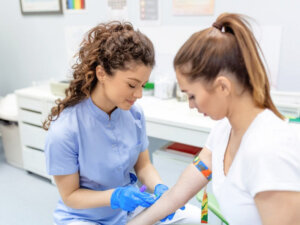How Combined Medical Assistant & Phlebotomy Training Opens Doors in Healthcare


There is an increased number of opportunities in healthcare, which moves forward fast, and professional workers are welcomed to adjust to various clinical settings. One of the most worthwhile skill sets whose pairing exists in the modern healthcare environment is the one between medical assistant and phlebotomy competence. Besides improving job opportunities, this twofold qualification comes in extremely handy as it imparts multi-purpose talent on the medical facility with versatile professionals that can undertake various duties effectively.
The Growing Demand for Multi-Skilled Healthcare Professionals
There is a growing demand of healthcare professionals all over the world who are in a position to competently handle different tasks. The skills of medical assistance and PhD I would have a flawless answer to this need because it would produce people who could easily transfer between clinical work, administrative work, and the work of blood collection. This flexibility has proved to be especially useful at small clinics, urgent care, and specialty medical practices where multi-tasking employees are the norm.
The combination of these two skills sets shows the orientation of modern healthcare environment towards efficiency and cost-effectiveness. Employers value the employment of the professionals that have received combined training, as it minimizes the use of the several specialists and guarantees continuity of uniform high-quality patient care in various areas served by the organization.
Understanding the Medical Assistant Role
A medical assistant within the care of a healthcare facility is regarded as its backbone and acts as an interface between the administrative role and clinical role. Such practitioners do patient scheduling, medical record keeping, help during tests, vital signs taking, and simple laboratory work. They are well trained to deal with the front office and the back office clinical care support thus, they are the essential members of a team in different healthcare organization.
The field of medical assistance and duties keeps developing regarding technologies, new models of healthcare, and the demands of patients and doctors. Contemporary medical assistants have regular access to electronic health records and organize the telehealth appointments as well as participate in the preventive care programs. This widened responsibility increases the worth of other expert skills in need such as phlebotomy in the event of career progress.
The Specialized Field of Phlebotomy
Phlebotomy is also an essential element of healthcare diagnostics because it is associated with drawing blood samples to conduct analyzes in the laboratory. The professional phlebotomists need to be well versed in different methods of venipuncture, how to handle specimen properly and with close attention to safety rules to eliminate contamination and make sure patient is comfortable. This specialty involves precision, attention to details and outstanding interpersonal communication skills.
Advantages of Combined Training
There are several strong points in acquiring medical assistant and phlebotomy training at the same time which would be hard to achieve by studying them individually. The students are able to align similar concepts and skills, which result in synergies leading to the efficient learning. As an example, knowledge on anatomy and physiology is used in both of these roles and staying skills of interacting with patients are also common in the two fields.
This combined strategy also enables students to get to know how various healthcare roles relate with each other in clinical processes. With phlebotomy skills, a medical assistant can play a better role in managing how a patient is treated, even with scheduling an appointment with a specialist in the first place, as well as collecting the samples and communicating the results with the patient, therefore facilitating a smoother experience.
Career Opportunities and Flexibility
A professional that combines the training of medical assistant and phlebotomy has much wider career opportunities compared to those with single specialization. They may be employed in all manner of facilities such as physician office, hospitals, outpatient clinic, diagnostic labs, blood banks and mobile health care. This flexibility gives them a sense of job stability as well as the freedom to move to new healthcare settings over time in the course of their career.
Most employers in the healthcare sector are so active that they prefer hiring an employee who has more than one competency and, in most cases, they tend to offer better remuneration and more chances of promotion to the applicants with a combined skill. These professionals who can do both administrative and specialized technical procedures stand out as important to smaller practices due to the importance of efficiency and cost management.
Conclusion
Internationalization of healthcare education has opened up possibilities through which the practitioners in the making to have a chance to be trained in different places all over the world. As an example, a person willing to study a phlebotomy course in Dubai will receive quality education and get to learn about new healthcare systems and approaches to treating patients with the experience of diverse cultures. This kind of international exposure has the capacity of lending professional growth and development of networking relationships that transcend local markets.
The healthcare industry in Dubai is one business area that has seen an outrageous boom resulting in the demand of trained medical practitioners in different fields. The city being a regional health hub is also an ideal place to enroll in an ideal medical training program.


